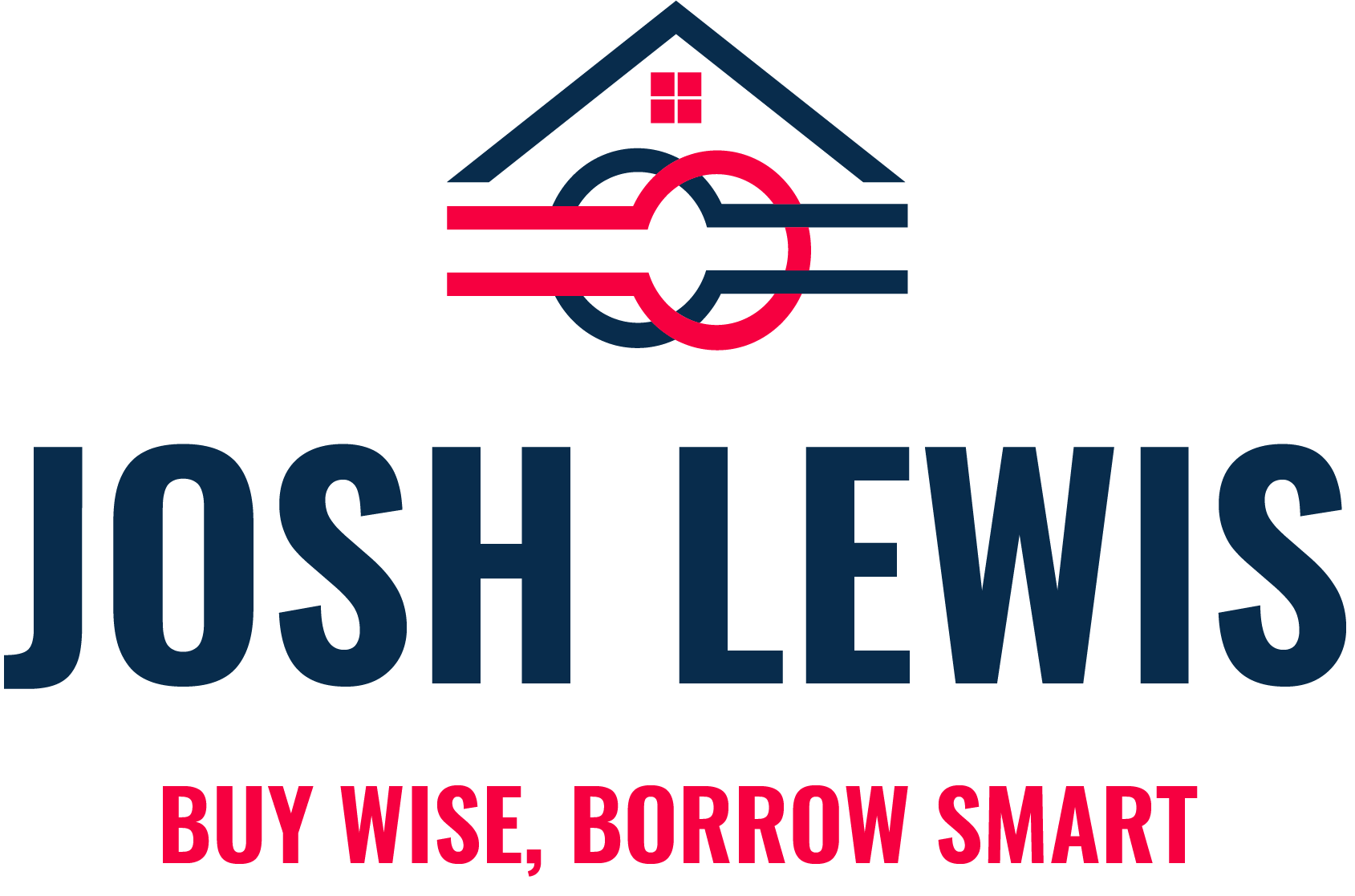Blogs:
Buy Wise, Borrow Smart

By Josh Lewis
•
April 5, 2025
Building wealth isn’t about luck or high-paying jobs - it’s about smart financial decisions repeated over time. That’s the central theme of Eavesdropping on Millionaires, a book by John Mauldin and Tiffani Mauldin , which examines the habits and strategies of everyday people who became millionaires. Their insights reveal a common pattern: successful wealth builders focus on earning, saving, investing, and leveraging real estate to their advantage . Here are three millionaire money habits that can transform your financial future: 1) They Earn Money with Purpose The millionaires in the book didn’t just work jobs - they leveraged their careers and businesses to build wealth. Whether through smart salary negotiation, side businesses, or investing in their own skills, they saw earning as the foundation for financial independence. Takeaway: Increase your income by focusing on value creation. Whether it’s negotiating a raise, starting a side hustle, or improving your skills, the more you earn, the more you can save and invest. 2) They Invest Early and Often One common theme? Millionaires invest consistently. They take advantage of compounding, reinvest dividends, and focus on long-term growth. One of the best ways to start? Homeownership. Unlike renting (where your money disappears into your landlord’s pocket), owning a home allows you to benefit from leveraged appreciation . If you buy a home with 5% down and the value rises by 5%, you’ve doubled your initial investment. Takeaway: Start investing ASAP—whether in stocks, real estate, or retirement accounts. Small, consistent contributions snowball over time. 3) They Use Real Estate to Build Wealth Many millionaires didn’t get rich from real estate - they got rich and then bought real estate. But for those just starting out, buying a home is one of the best wealth-building moves you can make. It fixes your housing costs, protecting you from rising rents. It builds equity, growing your net worth over time. It gives you leverage, meaning your returns can be far greater than your initial down payment. Takeaway: If you’re renting, you’re paying someone else’s mortgage. If homeownership is within reach, it’s a step worth considering. The Bottom Line Millionaires don’t build wealth overnight - they do it by making smart money decisions, year after year. Earning strategically, investing consistently, and using real estate wisely are habits that anyone can adopt. Want to make sure you’re on the right path? Let’s talk about how homeownership fits into your financial future. Schedule a Quick Call Josh Lewis, CMC Certified Mortgage Consultant | Certified Liability Advisor

By Josh Lewis
•
March 28, 2025
Most people think of their mortgage as just another bill—but wealthy individuals see it as a financial tool . The way you structure your mortgage can mean the difference between financial freedom and unnecessary debt . How Mortgage Strategy Impacts Wealth ✔ Loan Term Length Matters – A 30-year mortgage keeps payments low, but a 15-year loan builds equity faster. Which is right for you? ✔ Interest Rates Aren’t Everything – A lower rate is great, but flexibility, cash flow, and long-term strategy matter just as much. ✔ Fixed vs. Adjustable Loans – A fixed-rate mortgage offers stability, but there are times when an ARM can save you money—if you know how to use it. Smart Mortgage Strategies for Building Wealth ✅ Align Your Mortgage with Your Life Plan – Choose terms and payments that fit your financial goals, not just what the lender offers. ✅ Use Extra Payments Strategically – Paying down principal early can save thousands, but not if it comes at the cost of lost investment opportunities. ✅ Leverage Equity When It Makes Sense – Instead of sitting on unused home equity, consider how it can be a tool for smart investing. Your mortgage is one of the most powerful financial levers you have. Want to make sure yours is working for you, not against you? Let’s talk about how to optimize your mortgage for long-term financial success. Schedule a Quick Call Josh Lewis, CMC Certified Mortgage Consultant | Certified Liability Advisor

By Josh Lewis
•
March 22, 2025
Your home isn’t just the roof over your head—it’s also a powerful financial tool . As of Q3 2024 , U.S. homeowners collectively hold over $34.9 trillion in home equity ( Federal Reserve ). On average, US homeowners have approximately $311,000 in home equity ( CoreLogic ). This substantial wealth prompts an important question: Should you tap into your home equity? And if so, how do you do it wisely? Your Options for Accessing Home Equity ✔ Cash-Out Refinance – Replaces your existing mortgage with a new one at a higher amount. Best when you want a fixed rate and longer repayment period. ✔ HELOC (Home Equity Line of Credit) – A revolving credit line that lets you borrow as needed. Best for flexibility and short-term needs. ✔ Second Mortgage – A lump sum loan secured against your home’s equity. Best for one-time large expenses with predictable repayment. When Tapping Home Equity Makes Sense ✅ Debt Consolidation at a Lower Interest Rate – Paying off high-interest debt (like credit cards) at a lower mortgage rate. ✅ Home Improvements That Increase Value – Renovations that enhance resale value or improve quality of life. ✅ Investing in Real Estate or a Business – Using low-interest home equity to fund high-return investments. When You Should Think Twice ❌ Funding Lifestyle Expenses – Vacations, shopping sprees, or daily spending should come from income—not home equity. ❌ Unstable Income or Retirement – Tapping equity without a clear plan for repayment can lead to financial strain. ❌ Rising Interest Rate Environment – In a rising rate environment, borrowing against home equity may cost more than it’s worth. Your home’s equity is a powerful tool—but only when used strategically . Want to run the numbers and explore whether accessing home equity is right for you? Let’s talk about the best approach for your financial goals. Schedule a Quick Call Josh Lewis, CMC Certified Mortgage Consultant | Certified Liability Advisor

By Josh Lewis
•
March 15, 2025
Over the last few weeks, we’ve explored the power of smart debt , the importance of saving and investing wisely , and the idea that money is a tool to enhance life—not just something to accumulate . If you missed any of those, you can catch up here: 📌 Smart vs. Bad Debt – The Foundation of Financial Freedom 📌 The Power of Saving & Investing – Anne Scheiber’s Approach 📌 Why Money Should Serve You – Bill Perkins & ‘Die With Zero’ Now, let’s bring that discussion into real estate. What’s the smarter financial move: Paying off your mortgage early or putting that money into investments? Many homeowners think eliminating their mortgage as quickly as possible is the best path to financial freedom. But is it really? Let’s take a look: The Case for Paying Off Your Mortgage Early ✔ Guaranteed Return – Every extra dollar toward your mortgage saves you interest. If your mortgage rate is 6%, that’s a 6% return—risk-free. ✔ Lower Stress & More Security – No mortgage means lower monthly expenses and peace of mind. ✔ Retirement Simplicity – Entering retirement without a mortgage reduces financial obligations. The Case for Investing Instead ✔ Higher Long-Term Returns – Historically, the stock market has averaged 7-10% returns. If your mortgage rate is lower than that, investing could grow your wealth faster. ✔ Liquidity & Flexibility – Once you prepay a mortgage, that money is locked into your home. Investments remain accessible for opportunities or emergencies. ✔ Opportunity Cost – Every extra dollar toward your mortgage is a dollar that isn’t compounding in stocks, real estate, or other investments. So, What’s the Right Move? It depends on your goals, risk tolerance, and financial situation. A hybrid strategy—investing while making strategic mortgage payments—often provides the best balance of security and growth . Want to make sure you’re making the right financial move for your future? Let’s talk about structuring your mortgage to maximize wealth-building opportunities. Schedule a Quick Call Josh Lewis, CMC Certified Mortgage Consultant | Certified Liability Advisor

By Josh Lewis
•
March 7, 2025
Ever heard of Bill Perkins? Unlike Anne Scheiber, who lived frugally to accumulate wealth, Perkins believes that money is meant to be used for experiences, relationships, and fulfillment - not just left behind in a bank account. His philosophy, outlined in his book Die With Zero, is about maximizing life, not just wealth . The idea? You can’t take money with you, and you shouldn’t let fear of running out keep you from enjoying the time you have. Saving Smart vs. Living Fully While frugality and discipline are essential, extreme saving without balance can mean missing out on life itself . Perkins argues that: The best memories are made at the right time in life —not when you’re too old to enjoy them. Experiences create a “memory dividend” —the happiness from an experience continues long after it happens. Many people work longer than they need to, only to leave behind money they never get to use . So Where’s the Balance? Frugality has its place, but so does spending wisely on what adds value to your life . That might mean: Investing in travel or family experiences while you’re young enough to enjoy them. Not delaying adventures or personal goals in the name of excessive saving. Using money to free up time and reduce stress , rather than accumulating it without purpose. The Takeaway? Plan for Tomorrow, But Live for Today Yes, be smart about money. Yes, build wealth. But don’t let fear keep you from using your hard-earned dollars to enrich your life now . The goal isn’t just to leave a financial legacy—it’s to create a life filled with meaningful moments. Want to make sure your financial strategy supports both your future and your present? Let’s talk about optimizing your mortgage and wealth plan so you can enjoy your money while still securing your financial future. Book a Free Strategy Call Josh Lewis, CMC Certified Mortgage Consultant | Certified Liability Advisor

By Josh Lewis
•
February 28, 2025
Ever heard of Anne Scheiber? She wasn’t a Wall Street banker or a Silicon Valley entrepreneur. She was an IRS auditor who quietly built a $22 million fortune. No lottery wins, no secret inheritance—just smart financial decisions. Anne Scheiber worked for the IRS for 23 years but faced gender discrimination and was never promoted. When she retired in 1944, she had only $5,000 in savings . Instead of spending lavishly, she lived frugally in a small rent-controlled apartment and dedicated herself to investing. She carefully chose blue-chip stocks she understood , reinvested dividends, and let compound growth do the rest. Over time, her disciplined, patient approach turned her modest savings into millions. The Lesson? It’s Not About How Much You Make—It’s About How You Manage It. Most people aren’t taught how to use money wisely. They fall into common financial traps that keep them stuck, even as their income grows. Here’s how to avoid those mistakes and start using money like the wealthy do. 1. The Lifestyle Trap: When More Money = More Spending Too many people increase their spending the moment they get a raise—nicer cars, fancier vacations, upgraded homes. But wealth isn’t built on spending more; it’s built on spending less than you make and investing the difference . 2. Borrowing the Maximum You Qualify For Just because the bank says you can afford a $750,000 home doesn’t mean it’s a smart financial move. Lenders aren’t wealth advisors—they’re in the business of getting you to borrow more. Wealthy individuals take on debt strategically, not emotionally . Keep your monthly payments low and your cash flow high. 3. Ignoring Taxes and Retirement Accounts Taxes are likely your biggest lifetime expense, yet most people do nothing to minimize them. Simple strategies like maximizing your 401(k), using a Roth IRA, and leveraging tax-efficient investments can save you hundreds of thousands over your lifetime. 4. Not Having a Liquidity Plan Your home might be worth $800,000, but if all your wealth is locked in bricks and you have no cash reserves, you’re financially fragile. The wealthy make sure they have access to capital when they need it , whether through savings, a HELOC, or other smart financial tools. The Bottom Line: Wealth Isn’t Built Overnight, It’s Built Over Time Anne Scheiber didn’t have a six-figure salary, but she mastered the principles of good debt, disciplined saving, and smart investing . Want to make sure your financial strategy is working for you? Let’s talk about how to optimize your mortgage, access your equity, and create a wealth-building plan that actually works. Book a Free Strategy Call Josh Lewis, CMC Certified Mortgage Consultant | Certified Liability Advisor

By Josh Lewis
•
February 7, 2025
Debt is like fire—it can either warm your home or burn it down. Many view debt as something to avoid, but that’s only half the story. Used wisely, debt is a powerful tool for building wealth. Used poorly, it becomes a financial burden that keeps you stuck. Your Mortgage: A Wealth-Building Lever or a Slow Leak? Did you know that 66% of total U.S. liabilities are tied up in mortgages? For most people, their home loan is their biggest financial tool. The problem? Too many homeowners treat their mortgage as just another bill instead of leveraging it to build wealth. When managed correctly, your mortgage can help you: Increase cash flow by lowering payments strategically Access equity at the right time for investments or emergencies Grow wealth by using low-cost borrowing to build assets Cash Flow is King—Debt Can Either Fuel It or Kill It Credit card interest rates are hovering around 20%+. Auto loans, student loans, and personal loans eat up a big chunk of monthly income. If your debt is draining your cash flow, you’re limiting your ability to invest, save, or even breathe financially. Wealthy individuals manage debt differently: They prioritize low-cost, long-term debt (like mortgages). They eliminate high-interest, short-term debt (like credit cards). They ensure every borrowed dollar is working for them, not against them. Home Equity: Do You Actually Have Access to Your Wealth? The U.S. has $189.7 trillion in total assets, but 28% of that is tied up in homes. That means much of the wealth people have is locked inside their houses, often untapped. Can you access yours? Do you have a plan for using home equity wisely? Are you optimizing your mortgage to support your financial goals? Have you reviewed your debt strategy in the last year? The Play? Borrow Smart. Repay Smarter. A good financial strategy isn’t just about paying off debt—it’s about managing it wisely. Every dollar of debt you carry should be working for you, not against you. If you want to make sure your debt is structured the right way, let’s talk. A quick strategy session could help you improve cash flow, unlock equity, and put your mortgage to work for you. Book a Free Debt Strategy Call Josh Lewis, CMC Certified Mortgage Consultant | Certified Liability Advisor

By Josh Lewis
•
September 10, 2024
As a veteran looking to use your VA loan benefit, understanding how lenders calculate your income is crucial. Whether you're active duty, self-employed, or have variable pay, the rules can seem complex. But don't worry – we're here to break it down for you in simple terms. If you have questions as we go along, feel free to reach out to me, Josh Lewis, Certified Mortgage Consultant. I'm here to help you navigate the VA loan process. Let's start with the big picture. When looking at any type of income, VA underwriters are focused on three main things: 1. Is the income verifiable? 2. Is it stable? 3. Is it likely to continue? These factors apply whether you're active duty military, self-employed, or have variable pay like commissions or bonuses. Now, let's dive into the specifics for each type of income. Active Duty Military Income If you're active duty, your Leave and Earnings Statement (LES) is going to be your best friend in the loan process. Here's what lenders look at on your LES: End of Service (ETS) Date: This is super important. If your ETS date is within 12 months of when you'll close on your home, we can't use your income unless you're planning to reenlist and are eligible to do so. Officers have it a bit easier here, as their ETS date often shows as "indefinite." Base Pay: This is straightforward – it's based on your rank and years of service. Basic Allowance for Housing (BAH) and Basic Allowance for Subsistence (BAS): These are standard based on your duty station and whether you have dependents. Special Pay: Things like foreign language pay, flight pay, or hazardous duty pay. To use these, we need to verify they'll continue for at least 36 months. Here's a pro tip: We can actually "gross up" your BAH and BAS by about 25% because they're non-taxable. This means a $1,000 BAH actually counts as $1,250 for qualifying purposes. Pretty sweet, right? If you're curious about how this might affect your qualification, don't hesitate to reach out to me for a personalized analysis. One thing to watch out for: If you're moving to a new duty station, make sure your lender is using the correct BAH for your new location. This can make a big difference in how much you qualify for, especially if you're moving from a high-cost area to a lower-cost one (or vice versa). Self-Employed Income Now, if you're self-employed, things get a bit more complex. The basic rule is we need to see two years of tax returns. But don't panic if you don't have that – there are exceptions, which we'll get to in a bit. Here's what we're looking at for self-employed folks: Tax Returns: We need to see your personal returns and, if you have a separate business entity, your business returns too. Profit and Loss Statements: These help us see how your business is doing currently compared to previous years. Business Stability: We're looking at whether your income is steady or growing. If it's declining, we'll need a good explanation why. Now, here's where the VA loan really shines. While most loan programs require a full two years of self-employment history, the VA can be more flexible. In some cases, we can use just one year of returns with an otherwise strong file. Here's a real-world example: I recently worked with a veteran who had been a construction manager for 29 years. She left her W-2 job 14 months ago to become a 1099 contractor for a developer. She was making $177,000 a year, had money in the bank, and we could show consistent deposits. Even though she didn't have two years of self-employment, we were able to make it work because of her long history in the same field and her stable current income. If you're self-employed and wondering how your unique situation might be viewed by lenders, I'd be happy to review your details and provide some guidance. Just give me a call or send me an email. One important note: If you're self-employed and pay yourself a salary, don't assume we can just use that salary amount. We have to look at your overall business income too. If your business is showing a loss, that salary might not count as qualifying income. Variable Pay Variable pay includes things like commissions, bonuses, overtime, and part-time or seasonal work. The general rule here is we need to see a two-year history of receiving this income. But as with everything in VA loans, there's some flexibility. Here's how we handle different types of variable pay: Commissions: We typically average your commission income over two years. If it's increasing, that's great. If it's decreasing, we might have to use the lower figure or explain why it's likely to stabilize or increase. Bonuses: These need to be regular and likely to continue. A one-time signing bonus won't cut it, but if you get an annual performance bonus, we might be able to use that. Overtime: We'll look at your history of overtime and whether it's likely to continue. If you've been consistently getting 10 hours of overtime every week for two years, that's pretty solid. Part-time or Seasonal Work: Again, we need to see a history here. If you've been working a summer job for the past couple of years, we might be able to use that income. The key with all variable pay is documentation. The more you can provide, the better. Pay stubs, W-2s, and written verification from your employer all help make your case. If you're unsure about what documentation you need for your specific situation, feel free to reach out. I can provide a checklist tailored to your income types. Rental Income If you're keeping your current home as a rental when you buy a new one, or if you already own rental properties, here's what you need to know: Departing Residence: If you're keeping your current home as a rental, we can use the potential rent to offset the mortgage payment. But we can't use any excess rent as additional income. Existing Rental Properties: If you already own rentals, we typically need to see two years of tax returns showing this income. We'll use your Schedule E to calculate your net rental income. Multi-Unit Properties: If you're buying a multi-unit property (like a duplex or fourplex) and plan to live in one unit and rent out the others, you might need to show you have experience as a landlord or that you'll be using a property management company. Rental income can be a great way to boost your qualifying income, but it can also be tricky to document correctly. If you're considering using rental income to qualify, let's chat about your specific situation and how we can make it work. Other Types of Income There are a few other types of income worth mentioning: Alimony and Child Support: We can use this if you can show it'll continue for at least three years. VA Disability: This is great income for qualifying and doesn't require much documentation. Social Security: We'll need your award letter and proof you're receiving the payments. Remember, lenders can't ask about alimony or child support due to fair lending laws. If you receive this income and want to use it, you'll need to volunteer that information. Common Challenges and How to Handle Them Now that we've covered the main types of income, let's talk about some common challenges and how to handle them: Recent Job Changes: Contrary to popular belief, changing jobs doesn't automatically disqualify you. If you've stayed in the same field and your income has remained steady or increased, it's usually not a problem. The key is that the change makes sense – like moving to a better-paying position in your field. Employment Gaps: These aren't necessarily deal-breakers. If you took time off for school, to care for family, or because of a military deployment, we can usually work with that. The key is to explain the gap and show that you're now back to stable employment. Declining Income: This can be tricky. If your income has decreased, we'll need a good explanation of why and evidence that it's stabilized or starting to increase again. Multiple Jobs: If you work more than one job, we generally need to see a two-year history of working multiple jobs to use all the income. This shows you can handle the workload long-term. If you're facing any of these challenges, don't assume you can't qualify. Reach out and we can discuss strategies to overcome these hurdles. Often, there are solutions that you might not be aware of. Tips for Success Here are some tips to make the income qualification process smoother: Be upfront with your lender: If you have any unusual income situations, tell your lender right away. The sooner we know, the sooner we can figure out how to make it work. Keep good records: Save your pay stubs, tax returns, and any other income documentation. The more information you can provide, the easier it is to qualify your income. Don't make major changes during the loan process: Try not to change jobs, take on new debts, or make large deposits without talking to your lender first. Use an experienced VA lender: The VA loan program has some unique features that not all lenders understand. Working with someone who knows the ins and outs of VA loans can make a big difference. Don't assume you won't qualify: The VA loan program is incredibly flexible. Even if you've been told "no" before, it's worth talking to a VA loan specialist. They might be able to find a way to make it work. If you're ready to start the VA loan process or just have questions about how your income might be viewed, I'm here to help. As a Certified Mortgage Consultant specializing in VA loans, I can provide the guidance you need to navigate this process successfully. The Importance of Working with the Right Lender I can't stress this enough: who you work with matters. The VA loan is the most flexible and forgiving loan product out there. It's the only one where the underwriter is instructed to find a way to make the loan work if possible. But to take full advantage of this flexibility, you need a lender who really understands VA loans. I hear stories all the time of veterans being told they should use a conventional loan instead of their VA benefit. In 99% of these cases, the person giving that advice simply doesn't understand VA loans. A good VA lender will know how to: Maximize your income: They'll know which types of income to include and how to document them properly. Navigate challenges: Whether it's a recent job change, a gap in employment, or variable income, an experienced VA lender will know how to handle it. Take advantage of VA flexibilities: The VA allows for some exceptions that other loan programs don't. A knowledgeable lender will know when and how to use these exceptions. Guide you through the process: They'll be able to tell you exactly what documentation you need and help you understand each step of the process. As a Certified Mortgage Consultant with nearly 30 years of experience helping veterans like you, I'm committed to providing this level of expertise and guidance to my clients. If you're ready to explore your VA loan options, let's set up a time to talk. Final Thoughts Understanding how lenders calculate your income for a VA loan can seem complicated, but it doesn't have to be. The key things to remember are: Income needs to be verifiable, stable, and likely to continue. There's often more flexibility than you might think, especially with VA loans. Good documentation is crucial. Working with an experienced VA lender can make a big difference. Whether you're active duty military, self-employed, or have variable income, there's likely a way to make your VA loan work. Don't be discouraged if your income situation is a bit unusual – that's where the flexibility of the VA loan really shines. Remember, the VA loan benefit is a fantastic tool to help veterans achieve homeownership. It offers great terms, flexible qualification guidelines, and doesn't require a down payment in most cases. By understanding how income qualification works, you're taking a big step toward using this benefit effectively. So gather your income documents, schedule a call on my calendar, and take the first step toward your new home. With the right preparation and guidance, we’ll get you on your way to making your homeownership dreams a reality. If you're ready to start your VA loan journey or just have questions about the process, I'm here to help. As a Certified Mortgage Consultant specializing in VA loans, I can provide personalized guidance based on your unique situation. Don't hesitate to reach out – let's work together to make your homeownership goals a reality.

By Josh Lewis
•
September 29, 2023
After 27 years of working with people like you navigating their way through the complexities of the housing market, I understand the reservations many renters have about taking the plunge into homeownership. After all, owning a home is more than just another line item on an adulting checklist—it’s a major life decision requiring thoughtful preparation and stable resources. The Right Time: Is It Now or Later? Last week, we delved into some critical questions that renters should ponder when evaluating the decision to make the leap from a lease to a mortgage. The American Dream of owning a home tantalizes many, but the reality is, it's not for everyone—at least not all people at all times. The "Why Not Now" Factors Let’s start by acknowledging that the reluctance to buy often comes from legitimate concerns. The three "Big Rs"—Readiness, Resources, and Responsibility—often serve as stumbling blocks. Readiness: If your career path is still winding or the ink on your marriage certificate is still drying, then geographical flexibility might outweigh the advantages of owning a home. Real estate, although a rewarding investment, comes with substantial transaction costs. For homeownership to make economic sense, generally, you should plan to keep the property for a minimum of 5-7 years. Resources: Buying a home requires a strong financial foundation. That foundation involves more than just a stable income. Your credit score, savings, and overall debt are key indicators of your readiness. Falling short in any of these can significantly diminish your borrowing power, affecting the quality of home you can afford. More importantly, being able to hit financial milestones on the path to home ownership helps prove to yourself that you are ready to make the leap. Responsibility: The challenges don't end at the closing table. Even if you don’t have a goal of becoming the next DIY design superstar, homeownership requires ongoing upkeep, repairs, and maintenance. From unexpected plumbing emergencies to seasonal lawn care, be prepared for a litany of “honey-dos” that require your time, energy and additional resources. Plotting Your Course: The 3-5 Year Plan What if you’ve done the soul-searching and concluded that now is not the opportune time to buy a home? That's perfectly okay. Your housing choices don't have to be a binary "own or don't own" decision. Let's strategize on positioning you to make the step into homeownership within the next 3-5 years. 1. Financial Milestones: The first task is defining your financial targets. Aim for a down payment of at least 5% of the anticipated price range you’re considering. Add another 2-3% for closing costs and cushion it with a 2% emergency fund. Your grand total should be around 10% of your projected home's price. 2. Budget Blueprint: Establishing a budget isn't about depriving yourself; it’s about optimizing your resources. Classify your monthly income and expenditures, and discern the nature of each expense. Is it a want or a need? This can help realign your spending behavior with your long-term objectives. 3. Automatic Wealth Building: Automation is your ally here. Leverage recurring monthly transfers from your primary account into a dedicated savings or investment account. This "set and forget" mechanism ensures that you’re consistently paying yourself first, making it easier to live on the remainder while growing your assets. Remember, many tax deferred accounts like a 401k or Roth IRA can be great vehicles for saving for your first home.

By Josh Lewis
•
September 15, 2023
At any given time, roughly 65% of American households own their homes. As a group, these homeowners have 40x greater net worth than renters with nearly half of that wealth in home equity. You can probably guess that I believe everyone should own their home. But does that mean every renter should run out and buy a home this weekend? ABSOLUTELY NOT! You have to buy when the time is right in your life. Before we dive into a few simple questions for you to answer to determine IF now is the right time for you, let’s do a quick recap on what we’ve covered over the last few weeks. Self Liquidating Debt - You have to live somewhere. For most people, that means a shelter payment. Homeowners benefit by applying that monthly payment to pay down the mortgage on their home. Renters continue to pay rent on the 1st of the month. Every month. There Is No 30 Year Fixed Rent - More than 90% of homeowners with mortgages use a fixed rate loan. That means that regardless of inflation or home prices, the monthly mortgage remains constant. Owners even have an option to LOWER their monthly payment any time rates drop. On the other hand, renters have faced annual rent increases averaging 3.2% since 1985 . Owners Are Forced to Save - Those 30 year fixed mortgages require a monthly principal payment. Every month, owners make a contribution to their home equity account. And every month that contribution grows until the final payment when the loan is eliminated.The current new mortgage in the US averages just over $400,000 . At current rates, a homeowner with a $400,000 mortgage will reduce their loan balance by over $4000 in the first year and over $56,000 over the first ten. Owners Benefit From Leveraged Appreciation - Over the last 35 years, homes in the US have appreciated 4.2% a year on average. A homeowner making a 10% down payment would see a 42% return on their investment in year 1, increasing over time as equity builds. The Potential for SOME Homeowners To Enjoy Tax Savings - There were some pretty significant changes to the tax code in 2018. These changes had a major impact on homebuyers. Bottom line, the tax benefits of home ownership aren’t as great as what you might expect. Now that we understand the major financial benefits of home ownership, we need to remember that when it comes to making the significant financial commitment of buying a home, timing is everything. The current real estate market has many people asking, "Is now the right time to transition from renting to owning?" To help you answer this question, I've compiled a list of five critical questions you should ask yourself before making this life-changing decision. 1. Job and Income Security: Are You Ready for a Long-term Commitment? One of the first things to consider is the stability of your employment and income. Buying a home is a long-term financial obligation. If you're contemplating job changes, expecting promotions, or even a career switch that could relocate you, weigh these variables carefully. Flexibility in location may be an essential factor for your growing career. The key is being confident in your current income and career trajectory. Owning a home is important, but so is maximizing your earnings and job satisfaction. 2. Credit and Debt: Can You Afford a Home Mortgage? Before venturing into homeownership, take a close look at your credit score and overall debt. You may have seen social media posts about buying with credit scores as low as 580. While this is possible, it’s far from optimal. A low credit score will increase your mortgage rate and fees while limiting the loan programs that are available to you. A healthy credit score and a manageable level of debt will not only make you a more attractive loan candidate but also give you peace of mind that you are ready to become a successful homeowner. 3. Savings: Is Your Financial Cushion Adequate? Owning a home comes with multiple financial responsibilities beyond the monthly mortgage payment. Most buyers will need to have money for a down payment and closing costs. Once you get into a home, it’s important to have a reserve fund for unexpected maintenance and life expenses. Before making the leap, make sure you've saved enough not just to buy the house but also to have a financial cushion afterward. Owning a home is great, but not if it brings along financial stress. 4. Relationship and Family: What Does the Future Hold? A stable family situation is another essential factor. If there is a possibility of significant changes in your relationship status or family size—like a marriage,divorce or children—you'll need to consider how that will affect your housing needs. Perhaps you need to be closer to aging parents or other family members who require care. Factor in these elements when contemplating the location and type of home to buy. 5. Long-term Plans: How Long Will You Stay? The general rule of thumb is that you should plan on staying in your new home for at least 5-7 years to make the investment worthwhile. Unlike other investments, buying a home can have significant transaction costs. This period allows you enough time to build equity in your home and potentially see its value appreciate. While homes will always appreciate over the long haul, there can be periods of flat or even declining prices. Having a long-term plan ensures you are in a solid financial position when it comes time to sell. If you've answered these questions and feel confident about your answers, then it might be the perfect time for you to transition from renting to owning. If not, it's completely okay; continue renting until your circumstances align better with the responsibilities and commitments that homeownership entails. The bottom line is working on your career and income, saving and investing, and maximizing your credit while maintaining a manageable debt load will serve you well no matter what direction life takes you. As always, if you need personalized advice on mortgages or have questions about the real estate market, please reach out. I’m here to help! Looking forward! Josh

By Josh Lewis
•
April 5, 2025
Building wealth isn’t about luck or high-paying jobs - it’s about smart financial decisions repeated over time. That’s the central theme of Eavesdropping on Millionaires, a book by John Mauldin and Tiffani Mauldin , which examines the habits and strategies of everyday people who became millionaires. Their insights reveal a common pattern: successful wealth builders focus on earning, saving, investing, and leveraging real estate to their advantage . Here are three millionaire money habits that can transform your financial future: 1) They Earn Money with Purpose The millionaires in the book didn’t just work jobs - they leveraged their careers and businesses to build wealth. Whether through smart salary negotiation, side businesses, or investing in their own skills, they saw earning as the foundation for financial independence. Takeaway: Increase your income by focusing on value creation. Whether it’s negotiating a raise, starting a side hustle, or improving your skills, the more you earn, the more you can save and invest. 2) They Invest Early and Often One common theme? Millionaires invest consistently. They take advantage of compounding, reinvest dividends, and focus on long-term growth. One of the best ways to start? Homeownership. Unlike renting (where your money disappears into your landlord’s pocket), owning a home allows you to benefit from leveraged appreciation . If you buy a home with 5% down and the value rises by 5%, you’ve doubled your initial investment. Takeaway: Start investing ASAP—whether in stocks, real estate, or retirement accounts. Small, consistent contributions snowball over time. 3) They Use Real Estate to Build Wealth Many millionaires didn’t get rich from real estate - they got rich and then bought real estate. But for those just starting out, buying a home is one of the best wealth-building moves you can make. It fixes your housing costs, protecting you from rising rents. It builds equity, growing your net worth over time. It gives you leverage, meaning your returns can be far greater than your initial down payment. Takeaway: If you’re renting, you’re paying someone else’s mortgage. If homeownership is within reach, it’s a step worth considering. The Bottom Line Millionaires don’t build wealth overnight - they do it by making smart money decisions, year after year. Earning strategically, investing consistently, and using real estate wisely are habits that anyone can adopt. Want to make sure you’re on the right path? Let’s talk about how homeownership fits into your financial future. Schedule a Quick Call Josh Lewis, CMC Certified Mortgage Consultant | Certified Liability Advisor

By Josh Lewis
•
March 28, 2025
Most people think of their mortgage as just another bill—but wealthy individuals see it as a financial tool . The way you structure your mortgage can mean the difference between financial freedom and unnecessary debt . How Mortgage Strategy Impacts Wealth ✔ Loan Term Length Matters – A 30-year mortgage keeps payments low, but a 15-year loan builds equity faster. Which is right for you? ✔ Interest Rates Aren’t Everything – A lower rate is great, but flexibility, cash flow, and long-term strategy matter just as much. ✔ Fixed vs. Adjustable Loans – A fixed-rate mortgage offers stability, but there are times when an ARM can save you money—if you know how to use it. Smart Mortgage Strategies for Building Wealth ✅ Align Your Mortgage with Your Life Plan – Choose terms and payments that fit your financial goals, not just what the lender offers. ✅ Use Extra Payments Strategically – Paying down principal early can save thousands, but not if it comes at the cost of lost investment opportunities. ✅ Leverage Equity When It Makes Sense – Instead of sitting on unused home equity, consider how it can be a tool for smart investing. Your mortgage is one of the most powerful financial levers you have. Want to make sure yours is working for you, not against you? Let’s talk about how to optimize your mortgage for long-term financial success. Schedule a Quick Call Josh Lewis, CMC Certified Mortgage Consultant | Certified Liability Advisor

By Josh Lewis
•
March 22, 2025
Your home isn’t just the roof over your head—it’s also a powerful financial tool . As of Q3 2024 , U.S. homeowners collectively hold over $34.9 trillion in home equity ( Federal Reserve ). On average, US homeowners have approximately $311,000 in home equity ( CoreLogic ). This substantial wealth prompts an important question: Should you tap into your home equity? And if so, how do you do it wisely? Your Options for Accessing Home Equity ✔ Cash-Out Refinance – Replaces your existing mortgage with a new one at a higher amount. Best when you want a fixed rate and longer repayment period. ✔ HELOC (Home Equity Line of Credit) – A revolving credit line that lets you borrow as needed. Best for flexibility and short-term needs. ✔ Second Mortgage – A lump sum loan secured against your home’s equity. Best for one-time large expenses with predictable repayment. When Tapping Home Equity Makes Sense ✅ Debt Consolidation at a Lower Interest Rate – Paying off high-interest debt (like credit cards) at a lower mortgage rate. ✅ Home Improvements That Increase Value – Renovations that enhance resale value or improve quality of life. ✅ Investing in Real Estate or a Business – Using low-interest home equity to fund high-return investments. When You Should Think Twice ❌ Funding Lifestyle Expenses – Vacations, shopping sprees, or daily spending should come from income—not home equity. ❌ Unstable Income or Retirement – Tapping equity without a clear plan for repayment can lead to financial strain. ❌ Rising Interest Rate Environment – In a rising rate environment, borrowing against home equity may cost more than it’s worth. Your home’s equity is a powerful tool—but only when used strategically . Want to run the numbers and explore whether accessing home equity is right for you? Let’s talk about the best approach for your financial goals. Schedule a Quick Call Josh Lewis, CMC Certified Mortgage Consultant | Certified Liability Advisor

By Josh Lewis
•
March 15, 2025
Over the last few weeks, we’ve explored the power of smart debt , the importance of saving and investing wisely , and the idea that money is a tool to enhance life—not just something to accumulate . If you missed any of those, you can catch up here: 📌 Smart vs. Bad Debt – The Foundation of Financial Freedom 📌 The Power of Saving & Investing – Anne Scheiber’s Approach 📌 Why Money Should Serve You – Bill Perkins & ‘Die With Zero’ Now, let’s bring that discussion into real estate. What’s the smarter financial move: Paying off your mortgage early or putting that money into investments? Many homeowners think eliminating their mortgage as quickly as possible is the best path to financial freedom. But is it really? Let’s take a look: The Case for Paying Off Your Mortgage Early ✔ Guaranteed Return – Every extra dollar toward your mortgage saves you interest. If your mortgage rate is 6%, that’s a 6% return—risk-free. ✔ Lower Stress & More Security – No mortgage means lower monthly expenses and peace of mind. ✔ Retirement Simplicity – Entering retirement without a mortgage reduces financial obligations. The Case for Investing Instead ✔ Higher Long-Term Returns – Historically, the stock market has averaged 7-10% returns. If your mortgage rate is lower than that, investing could grow your wealth faster. ✔ Liquidity & Flexibility – Once you prepay a mortgage, that money is locked into your home. Investments remain accessible for opportunities or emergencies. ✔ Opportunity Cost – Every extra dollar toward your mortgage is a dollar that isn’t compounding in stocks, real estate, or other investments. So, What’s the Right Move? It depends on your goals, risk tolerance, and financial situation. A hybrid strategy—investing while making strategic mortgage payments—often provides the best balance of security and growth . Want to make sure you’re making the right financial move for your future? Let’s talk about structuring your mortgage to maximize wealth-building opportunities. Schedule a Quick Call Josh Lewis, CMC Certified Mortgage Consultant | Certified Liability Advisor

By Josh Lewis
•
March 7, 2025
Ever heard of Bill Perkins? Unlike Anne Scheiber, who lived frugally to accumulate wealth, Perkins believes that money is meant to be used for experiences, relationships, and fulfillment - not just left behind in a bank account. His philosophy, outlined in his book Die With Zero, is about maximizing life, not just wealth . The idea? You can’t take money with you, and you shouldn’t let fear of running out keep you from enjoying the time you have. Saving Smart vs. Living Fully While frugality and discipline are essential, extreme saving without balance can mean missing out on life itself . Perkins argues that: The best memories are made at the right time in life —not when you’re too old to enjoy them. Experiences create a “memory dividend” —the happiness from an experience continues long after it happens. Many people work longer than they need to, only to leave behind money they never get to use . So Where’s the Balance? Frugality has its place, but so does spending wisely on what adds value to your life . That might mean: Investing in travel or family experiences while you’re young enough to enjoy them. Not delaying adventures or personal goals in the name of excessive saving. Using money to free up time and reduce stress , rather than accumulating it without purpose. The Takeaway? Plan for Tomorrow, But Live for Today Yes, be smart about money. Yes, build wealth. But don’t let fear keep you from using your hard-earned dollars to enrich your life now . The goal isn’t just to leave a financial legacy—it’s to create a life filled with meaningful moments. Want to make sure your financial strategy supports both your future and your present? Let’s talk about optimizing your mortgage and wealth plan so you can enjoy your money while still securing your financial future. Book a Free Strategy Call Josh Lewis, CMC Certified Mortgage Consultant | Certified Liability Advisor

By Josh Lewis
•
February 28, 2025
Ever heard of Anne Scheiber? She wasn’t a Wall Street banker or a Silicon Valley entrepreneur. She was an IRS auditor who quietly built a $22 million fortune. No lottery wins, no secret inheritance—just smart financial decisions. Anne Scheiber worked for the IRS for 23 years but faced gender discrimination and was never promoted. When she retired in 1944, she had only $5,000 in savings . Instead of spending lavishly, she lived frugally in a small rent-controlled apartment and dedicated herself to investing. She carefully chose blue-chip stocks she understood , reinvested dividends, and let compound growth do the rest. Over time, her disciplined, patient approach turned her modest savings into millions. The Lesson? It’s Not About How Much You Make—It’s About How You Manage It. Most people aren’t taught how to use money wisely. They fall into common financial traps that keep them stuck, even as their income grows. Here’s how to avoid those mistakes and start using money like the wealthy do. 1. The Lifestyle Trap: When More Money = More Spending Too many people increase their spending the moment they get a raise—nicer cars, fancier vacations, upgraded homes. But wealth isn’t built on spending more; it’s built on spending less than you make and investing the difference . 2. Borrowing the Maximum You Qualify For Just because the bank says you can afford a $750,000 home doesn’t mean it’s a smart financial move. Lenders aren’t wealth advisors—they’re in the business of getting you to borrow more. Wealthy individuals take on debt strategically, not emotionally . Keep your monthly payments low and your cash flow high. 3. Ignoring Taxes and Retirement Accounts Taxes are likely your biggest lifetime expense, yet most people do nothing to minimize them. Simple strategies like maximizing your 401(k), using a Roth IRA, and leveraging tax-efficient investments can save you hundreds of thousands over your lifetime. 4. Not Having a Liquidity Plan Your home might be worth $800,000, but if all your wealth is locked in bricks and you have no cash reserves, you’re financially fragile. The wealthy make sure they have access to capital when they need it , whether through savings, a HELOC, or other smart financial tools. The Bottom Line: Wealth Isn’t Built Overnight, It’s Built Over Time Anne Scheiber didn’t have a six-figure salary, but she mastered the principles of good debt, disciplined saving, and smart investing . Want to make sure your financial strategy is working for you? Let’s talk about how to optimize your mortgage, access your equity, and create a wealth-building plan that actually works. Book a Free Strategy Call Josh Lewis, CMC Certified Mortgage Consultant | Certified Liability Advisor

By Josh Lewis
•
February 7, 2025
Debt is like fire—it can either warm your home or burn it down. Many view debt as something to avoid, but that’s only half the story. Used wisely, debt is a powerful tool for building wealth. Used poorly, it becomes a financial burden that keeps you stuck. Your Mortgage: A Wealth-Building Lever or a Slow Leak? Did you know that 66% of total U.S. liabilities are tied up in mortgages? For most people, their home loan is their biggest financial tool. The problem? Too many homeowners treat their mortgage as just another bill instead of leveraging it to build wealth. When managed correctly, your mortgage can help you: Increase cash flow by lowering payments strategically Access equity at the right time for investments or emergencies Grow wealth by using low-cost borrowing to build assets Cash Flow is King—Debt Can Either Fuel It or Kill It Credit card interest rates are hovering around 20%+. Auto loans, student loans, and personal loans eat up a big chunk of monthly income. If your debt is draining your cash flow, you’re limiting your ability to invest, save, or even breathe financially. Wealthy individuals manage debt differently: They prioritize low-cost, long-term debt (like mortgages). They eliminate high-interest, short-term debt (like credit cards). They ensure every borrowed dollar is working for them, not against them. Home Equity: Do You Actually Have Access to Your Wealth? The U.S. has $189.7 trillion in total assets, but 28% of that is tied up in homes. That means much of the wealth people have is locked inside their houses, often untapped. Can you access yours? Do you have a plan for using home equity wisely? Are you optimizing your mortgage to support your financial goals? Have you reviewed your debt strategy in the last year? The Play? Borrow Smart. Repay Smarter. A good financial strategy isn’t just about paying off debt—it’s about managing it wisely. Every dollar of debt you carry should be working for you, not against you. If you want to make sure your debt is structured the right way, let’s talk. A quick strategy session could help you improve cash flow, unlock equity, and put your mortgage to work for you. Book a Free Debt Strategy Call Josh Lewis, CMC Certified Mortgage Consultant | Certified Liability Advisor

By Josh Lewis
•
September 10, 2024
As a veteran looking to use your VA loan benefit, understanding how lenders calculate your income is crucial. Whether you're active duty, self-employed, or have variable pay, the rules can seem complex. But don't worry – we're here to break it down for you in simple terms. If you have questions as we go along, feel free to reach out to me, Josh Lewis, Certified Mortgage Consultant. I'm here to help you navigate the VA loan process. Let's start with the big picture. When looking at any type of income, VA underwriters are focused on three main things: 1. Is the income verifiable? 2. Is it stable? 3. Is it likely to continue? These factors apply whether you're active duty military, self-employed, or have variable pay like commissions or bonuses. Now, let's dive into the specifics for each type of income. Active Duty Military Income If you're active duty, your Leave and Earnings Statement (LES) is going to be your best friend in the loan process. Here's what lenders look at on your LES: End of Service (ETS) Date: This is super important. If your ETS date is within 12 months of when you'll close on your home, we can't use your income unless you're planning to reenlist and are eligible to do so. Officers have it a bit easier here, as their ETS date often shows as "indefinite." Base Pay: This is straightforward – it's based on your rank and years of service. Basic Allowance for Housing (BAH) and Basic Allowance for Subsistence (BAS): These are standard based on your duty station and whether you have dependents. Special Pay: Things like foreign language pay, flight pay, or hazardous duty pay. To use these, we need to verify they'll continue for at least 36 months. Here's a pro tip: We can actually "gross up" your BAH and BAS by about 25% because they're non-taxable. This means a $1,000 BAH actually counts as $1,250 for qualifying purposes. Pretty sweet, right? If you're curious about how this might affect your qualification, don't hesitate to reach out to me for a personalized analysis. One thing to watch out for: If you're moving to a new duty station, make sure your lender is using the correct BAH for your new location. This can make a big difference in how much you qualify for, especially if you're moving from a high-cost area to a lower-cost one (or vice versa). Self-Employed Income Now, if you're self-employed, things get a bit more complex. The basic rule is we need to see two years of tax returns. But don't panic if you don't have that – there are exceptions, which we'll get to in a bit. Here's what we're looking at for self-employed folks: Tax Returns: We need to see your personal returns and, if you have a separate business entity, your business returns too. Profit and Loss Statements: These help us see how your business is doing currently compared to previous years. Business Stability: We're looking at whether your income is steady or growing. If it's declining, we'll need a good explanation why. Now, here's where the VA loan really shines. While most loan programs require a full two years of self-employment history, the VA can be more flexible. In some cases, we can use just one year of returns with an otherwise strong file. Here's a real-world example: I recently worked with a veteran who had been a construction manager for 29 years. She left her W-2 job 14 months ago to become a 1099 contractor for a developer. She was making $177,000 a year, had money in the bank, and we could show consistent deposits. Even though she didn't have two years of self-employment, we were able to make it work because of her long history in the same field and her stable current income. If you're self-employed and wondering how your unique situation might be viewed by lenders, I'd be happy to review your details and provide some guidance. Just give me a call or send me an email. One important note: If you're self-employed and pay yourself a salary, don't assume we can just use that salary amount. We have to look at your overall business income too. If your business is showing a loss, that salary might not count as qualifying income. Variable Pay Variable pay includes things like commissions, bonuses, overtime, and part-time or seasonal work. The general rule here is we need to see a two-year history of receiving this income. But as with everything in VA loans, there's some flexibility. Here's how we handle different types of variable pay: Commissions: We typically average your commission income over two years. If it's increasing, that's great. If it's decreasing, we might have to use the lower figure or explain why it's likely to stabilize or increase. Bonuses: These need to be regular and likely to continue. A one-time signing bonus won't cut it, but if you get an annual performance bonus, we might be able to use that. Overtime: We'll look at your history of overtime and whether it's likely to continue. If you've been consistently getting 10 hours of overtime every week for two years, that's pretty solid. Part-time or Seasonal Work: Again, we need to see a history here. If you've been working a summer job for the past couple of years, we might be able to use that income. The key with all variable pay is documentation. The more you can provide, the better. Pay stubs, W-2s, and written verification from your employer all help make your case. If you're unsure about what documentation you need for your specific situation, feel free to reach out. I can provide a checklist tailored to your income types. Rental Income If you're keeping your current home as a rental when you buy a new one, or if you already own rental properties, here's what you need to know: Departing Residence: If you're keeping your current home as a rental, we can use the potential rent to offset the mortgage payment. But we can't use any excess rent as additional income. Existing Rental Properties: If you already own rentals, we typically need to see two years of tax returns showing this income. We'll use your Schedule E to calculate your net rental income. Multi-Unit Properties: If you're buying a multi-unit property (like a duplex or fourplex) and plan to live in one unit and rent out the others, you might need to show you have experience as a landlord or that you'll be using a property management company. Rental income can be a great way to boost your qualifying income, but it can also be tricky to document correctly. If you're considering using rental income to qualify, let's chat about your specific situation and how we can make it work. Other Types of Income There are a few other types of income worth mentioning: Alimony and Child Support: We can use this if you can show it'll continue for at least three years. VA Disability: This is great income for qualifying and doesn't require much documentation. Social Security: We'll need your award letter and proof you're receiving the payments. Remember, lenders can't ask about alimony or child support due to fair lending laws. If you receive this income and want to use it, you'll need to volunteer that information. Common Challenges and How to Handle Them Now that we've covered the main types of income, let's talk about some common challenges and how to handle them: Recent Job Changes: Contrary to popular belief, changing jobs doesn't automatically disqualify you. If you've stayed in the same field and your income has remained steady or increased, it's usually not a problem. The key is that the change makes sense – like moving to a better-paying position in your field. Employment Gaps: These aren't necessarily deal-breakers. If you took time off for school, to care for family, or because of a military deployment, we can usually work with that. The key is to explain the gap and show that you're now back to stable employment. Declining Income: This can be tricky. If your income has decreased, we'll need a good explanation of why and evidence that it's stabilized or starting to increase again. Multiple Jobs: If you work more than one job, we generally need to see a two-year history of working multiple jobs to use all the income. This shows you can handle the workload long-term. If you're facing any of these challenges, don't assume you can't qualify. Reach out and we can discuss strategies to overcome these hurdles. Often, there are solutions that you might not be aware of. Tips for Success Here are some tips to make the income qualification process smoother: Be upfront with your lender: If you have any unusual income situations, tell your lender right away. The sooner we know, the sooner we can figure out how to make it work. Keep good records: Save your pay stubs, tax returns, and any other income documentation. The more information you can provide, the easier it is to qualify your income. Don't make major changes during the loan process: Try not to change jobs, take on new debts, or make large deposits without talking to your lender first. Use an experienced VA lender: The VA loan program has some unique features that not all lenders understand. Working with someone who knows the ins and outs of VA loans can make a big difference. Don't assume you won't qualify: The VA loan program is incredibly flexible. Even if you've been told "no" before, it's worth talking to a VA loan specialist. They might be able to find a way to make it work. If you're ready to start the VA loan process or just have questions about how your income might be viewed, I'm here to help. As a Certified Mortgage Consultant specializing in VA loans, I can provide the guidance you need to navigate this process successfully. The Importance of Working with the Right Lender I can't stress this enough: who you work with matters. The VA loan is the most flexible and forgiving loan product out there. It's the only one where the underwriter is instructed to find a way to make the loan work if possible. But to take full advantage of this flexibility, you need a lender who really understands VA loans. I hear stories all the time of veterans being told they should use a conventional loan instead of their VA benefit. In 99% of these cases, the person giving that advice simply doesn't understand VA loans. A good VA lender will know how to: Maximize your income: They'll know which types of income to include and how to document them properly. Navigate challenges: Whether it's a recent job change, a gap in employment, or variable income, an experienced VA lender will know how to handle it. Take advantage of VA flexibilities: The VA allows for some exceptions that other loan programs don't. A knowledgeable lender will know when and how to use these exceptions. Guide you through the process: They'll be able to tell you exactly what documentation you need and help you understand each step of the process. As a Certified Mortgage Consultant with nearly 30 years of experience helping veterans like you, I'm committed to providing this level of expertise and guidance to my clients. If you're ready to explore your VA loan options, let's set up a time to talk. Final Thoughts Understanding how lenders calculate your income for a VA loan can seem complicated, but it doesn't have to be. The key things to remember are: Income needs to be verifiable, stable, and likely to continue. There's often more flexibility than you might think, especially with VA loans. Good documentation is crucial. Working with an experienced VA lender can make a big difference. Whether you're active duty military, self-employed, or have variable income, there's likely a way to make your VA loan work. Don't be discouraged if your income situation is a bit unusual – that's where the flexibility of the VA loan really shines. Remember, the VA loan benefit is a fantastic tool to help veterans achieve homeownership. It offers great terms, flexible qualification guidelines, and doesn't require a down payment in most cases. By understanding how income qualification works, you're taking a big step toward using this benefit effectively. So gather your income documents, schedule a call on my calendar, and take the first step toward your new home. With the right preparation and guidance, we’ll get you on your way to making your homeownership dreams a reality. If you're ready to start your VA loan journey or just have questions about the process, I'm here to help. As a Certified Mortgage Consultant specializing in VA loans, I can provide personalized guidance based on your unique situation. Don't hesitate to reach out – let's work together to make your homeownership goals a reality.

By Josh Lewis
•
September 29, 2023
After 27 years of working with people like you navigating their way through the complexities of the housing market, I understand the reservations many renters have about taking the plunge into homeownership. After all, owning a home is more than just another line item on an adulting checklist—it’s a major life decision requiring thoughtful preparation and stable resources. The Right Time: Is It Now or Later? Last week, we delved into some critical questions that renters should ponder when evaluating the decision to make the leap from a lease to a mortgage. The American Dream of owning a home tantalizes many, but the reality is, it's not for everyone—at least not all people at all times. The "Why Not Now" Factors Let’s start by acknowledging that the reluctance to buy often comes from legitimate concerns. The three "Big Rs"—Readiness, Resources, and Responsibility—often serve as stumbling blocks. Readiness: If your career path is still winding or the ink on your marriage certificate is still drying, then geographical flexibility might outweigh the advantages of owning a home. Real estate, although a rewarding investment, comes with substantial transaction costs. For homeownership to make economic sense, generally, you should plan to keep the property for a minimum of 5-7 years. Resources: Buying a home requires a strong financial foundation. That foundation involves more than just a stable income. Your credit score, savings, and overall debt are key indicators of your readiness. Falling short in any of these can significantly diminish your borrowing power, affecting the quality of home you can afford. More importantly, being able to hit financial milestones on the path to home ownership helps prove to yourself that you are ready to make the leap. Responsibility: The challenges don't end at the closing table. Even if you don’t have a goal of becoming the next DIY design superstar, homeownership requires ongoing upkeep, repairs, and maintenance. From unexpected plumbing emergencies to seasonal lawn care, be prepared for a litany of “honey-dos” that require your time, energy and additional resources. Plotting Your Course: The 3-5 Year Plan What if you’ve done the soul-searching and concluded that now is not the opportune time to buy a home? That's perfectly okay. Your housing choices don't have to be a binary "own or don't own" decision. Let's strategize on positioning you to make the step into homeownership within the next 3-5 years. 1. Financial Milestones: The first task is defining your financial targets. Aim for a down payment of at least 5% of the anticipated price range you’re considering. Add another 2-3% for closing costs and cushion it with a 2% emergency fund. Your grand total should be around 10% of your projected home's price. 2. Budget Blueprint: Establishing a budget isn't about depriving yourself; it’s about optimizing your resources. Classify your monthly income and expenditures, and discern the nature of each expense. Is it a want or a need? This can help realign your spending behavior with your long-term objectives. 3. Automatic Wealth Building: Automation is your ally here. Leverage recurring monthly transfers from your primary account into a dedicated savings or investment account. This "set and forget" mechanism ensures that you’re consistently paying yourself first, making it easier to live on the remainder while growing your assets. Remember, many tax deferred accounts like a 401k or Roth IRA can be great vehicles for saving for your first home.

By Josh Lewis
•
September 15, 2023
At any given time, roughly 65% of American households own their homes. As a group, these homeowners have 40x greater net worth than renters with nearly half of that wealth in home equity. You can probably guess that I believe everyone should own their home. But does that mean every renter should run out and buy a home this weekend? ABSOLUTELY NOT! You have to buy when the time is right in your life. Before we dive into a few simple questions for you to answer to determine IF now is the right time for you, let’s do a quick recap on what we’ve covered over the last few weeks. Self Liquidating Debt - You have to live somewhere. For most people, that means a shelter payment. Homeowners benefit by applying that monthly payment to pay down the mortgage on their home. Renters continue to pay rent on the 1st of the month. Every month. There Is No 30 Year Fixed Rent - More than 90% of homeowners with mortgages use a fixed rate loan. That means that regardless of inflation or home prices, the monthly mortgage remains constant. Owners even have an option to LOWER their monthly payment any time rates drop. On the other hand, renters have faced annual rent increases averaging 3.2% since 1985 . Owners Are Forced to Save - Those 30 year fixed mortgages require a monthly principal payment. Every month, owners make a contribution to their home equity account. And every month that contribution grows until the final payment when the loan is eliminated.The current new mortgage in the US averages just over $400,000 . At current rates, a homeowner with a $400,000 mortgage will reduce their loan balance by over $4000 in the first year and over $56,000 over the first ten. Owners Benefit From Leveraged Appreciation - Over the last 35 years, homes in the US have appreciated 4.2% a year on average. A homeowner making a 10% down payment would see a 42% return on their investment in year 1, increasing over time as equity builds. The Potential for SOME Homeowners To Enjoy Tax Savings - There were some pretty significant changes to the tax code in 2018. These changes had a major impact on homebuyers. Bottom line, the tax benefits of home ownership aren’t as great as what you might expect. Now that we understand the major financial benefits of home ownership, we need to remember that when it comes to making the significant financial commitment of buying a home, timing is everything. The current real estate market has many people asking, "Is now the right time to transition from renting to owning?" To help you answer this question, I've compiled a list of five critical questions you should ask yourself before making this life-changing decision. 1. Job and Income Security: Are You Ready for a Long-term Commitment? One of the first things to consider is the stability of your employment and income. Buying a home is a long-term financial obligation. If you're contemplating job changes, expecting promotions, or even a career switch that could relocate you, weigh these variables carefully. Flexibility in location may be an essential factor for your growing career. The key is being confident in your current income and career trajectory. Owning a home is important, but so is maximizing your earnings and job satisfaction. 2. Credit and Debt: Can You Afford a Home Mortgage? Before venturing into homeownership, take a close look at your credit score and overall debt. You may have seen social media posts about buying with credit scores as low as 580. While this is possible, it’s far from optimal. A low credit score will increase your mortgage rate and fees while limiting the loan programs that are available to you. A healthy credit score and a manageable level of debt will not only make you a more attractive loan candidate but also give you peace of mind that you are ready to become a successful homeowner. 3. Savings: Is Your Financial Cushion Adequate? Owning a home comes with multiple financial responsibilities beyond the monthly mortgage payment. Most buyers will need to have money for a down payment and closing costs. Once you get into a home, it’s important to have a reserve fund for unexpected maintenance and life expenses. Before making the leap, make sure you've saved enough not just to buy the house but also to have a financial cushion afterward. Owning a home is great, but not if it brings along financial stress. 4. Relationship and Family: What Does the Future Hold? A stable family situation is another essential factor. If there is a possibility of significant changes in your relationship status or family size—like a marriage,divorce or children—you'll need to consider how that will affect your housing needs. Perhaps you need to be closer to aging parents or other family members who require care. Factor in these elements when contemplating the location and type of home to buy. 5. Long-term Plans: How Long Will You Stay? The general rule of thumb is that you should plan on staying in your new home for at least 5-7 years to make the investment worthwhile. Unlike other investments, buying a home can have significant transaction costs. This period allows you enough time to build equity in your home and potentially see its value appreciate. While homes will always appreciate over the long haul, there can be periods of flat or even declining prices. Having a long-term plan ensures you are in a solid financial position when it comes time to sell. If you've answered these questions and feel confident about your answers, then it might be the perfect time for you to transition from renting to owning. If not, it's completely okay; continue renting until your circumstances align better with the responsibilities and commitments that homeownership entails. The bottom line is working on your career and income, saving and investing, and maximizing your credit while maintaining a manageable debt load will serve you well no matter what direction life takes you. As always, if you need personalized advice on mortgages or have questions about the real estate market, please reach out. I’m here to help! Looking forward! Josh
REACH OUT TO JOSH LEWIS
Do You Have Mortgage Questions?
Let's chat! During this initial consultation, we'll learn more about your situation and what you're seeking in a home or loan. We'll provide advice and address any concerns you may have, in order to determine the best approach to achieving your goals. By the end of our conversation, we'll have a solid plan of action and next steps for moving forward.



